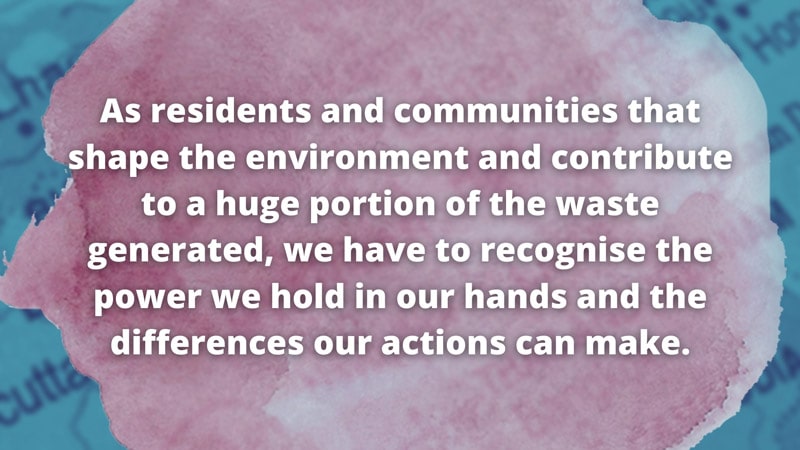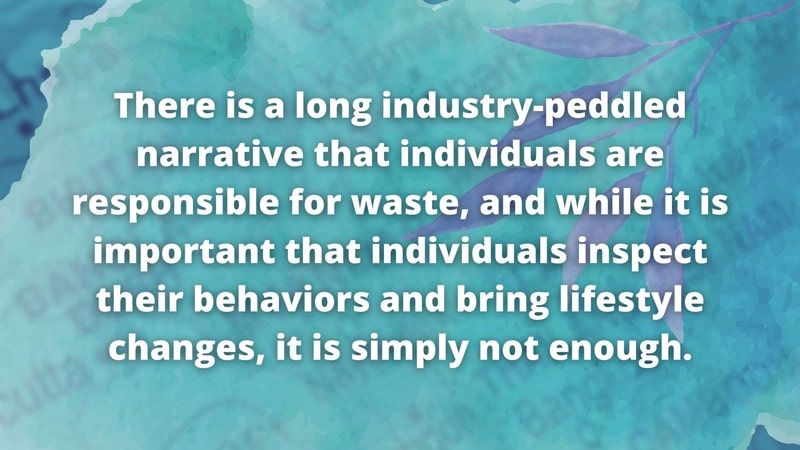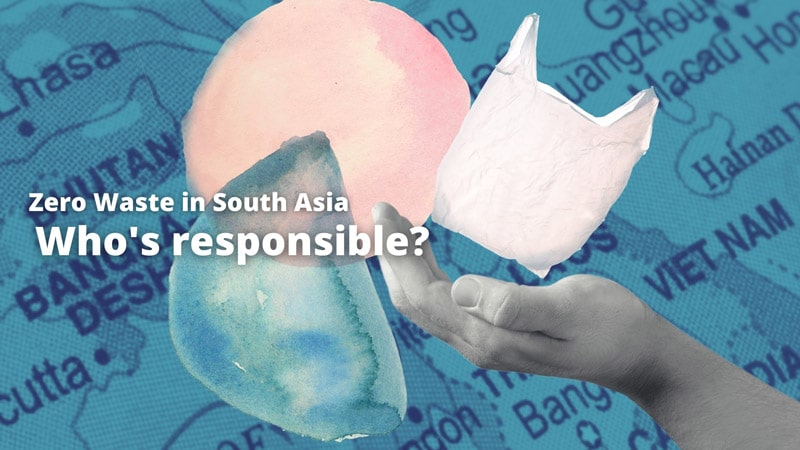The South Asia region that I took pride in for its beautiful Himalayas, pristine rivers, clean sandy beaches has now become a hub for the environmental crisis. From barren land to mountains, every street one walks, every mountain one climbs, and every river one dives into - it is a given that one will find some form of waste in there - plastics, more often than not.
Plastic pollution and solid waste management have been a burning issue in South Asia for quite a long time now. The lack of proper waste management techniques for all this waste has led most corners of cities and villages in the region to be filled with huge piles of waste. The copious amount of waste and pungent smell makes one question if there are any laws and policies at all in the region, when in fact there are multiple laws.
Bhutan first banned the use and sale of plastic carry bags, doma wrappers, and ice cream pouches in 1999. Bangladesh was one of the first countries in the world to roll out a plastic ban in 2002. Nepal’s capital city, Kathmandu implemented a plastics ban in 2015 . India, Sri-Lanka, Maldives have concrete plans to ban the use of plastics in several phases within the next few years. Despite all these existing and upcoming policies and laws, South Asia ranks third globally, generates a staggering 334 million metric tons of solid waste every year. The truth of the matter is we cannot merely rely on the laws and policies. The extent of the plastic and waste damage in the region requires a lot more than that.

As residents and communities that shape the environment and contribute to a huge portion of the waste generated, we have to recognise the power we hold in our hands and the differences our actions can make. Apart from fighting tough battles to introduce proper waste management services and advocating for government accountability, movements in the region have identified a more sustainable solution that addresses the issue from the root - building waste-free communities. According to the Zero Waste International Alliance, “zero waste is a goal that is ethical, economical, efficient and visionary, to guide people in changing their lifestyles and practices to emulate sustainable natural cycles, where all discarded materials are designed to become resources for others to use.”
Zero waste might seem like a daunting concept at first, but it is fairly easy to implement once you get started. “Zero Waste means designing and managing products and processes to systematically avoid and eliminate the volume and toxicity of waste and materials, conserve and recover all resources, and not burn or bury them. Implementing Zero Waste will eliminate all discharges to land, water or air that are a threat to planetary, human, animal or plant health.” (Chintan, India)
There is often a misconception that zero waste might not be possible in the South Asian community. There are several communities in the region that have successfully established zero waste systems. Many of our member organisations have been leading projects and movements to support communities in South-Asia to transition to zero waste. ESDO, Bangladesh is leading an initiative to create zero waste communities through effective management and the recovery of discarded materials. Members in India, Nepal, Maldives have been leading exemplary training and workshops to educate communities on a zero waste approach, but there is a need for a more systemic approach to complement these efforts and bring about a paradigm shift.

There is a long industry-peddled narrative that individuals are responsible for waste, and that waste can be addressed if individuals inspect their behaviors and bring lifestyle changes. In truth, individuals can control their consumption and reduce household wastes, but consumers do not have power over the choices that businesses make in the production process. Theys have control over the materials, design, and quality of the products they make, and hence the amount of waste generated. They need to take the responsibility of designing sustainable products that are strong, durable, and can be repaired and reused easily. They also need to ensure that the materials used are unharmful to the environment and that they have proper waste-management techniques.
However, unless there is something huge at stake, businesses do not budge on their traditional methods of manufacturing and selling. We need firm laws in South Asia that effectively hold producers accountable for the entire life-cycle of their products such as plastic packaging and sachets. Consumers can play a limited role in making informed choices but can encourage small businesses that provide plastic alternatives. It is crucial communities come together to use their voices to hold producers and governments accountable. It is when these voices unite - we get to witness a revolution.
The information used in this blog was collected from BFFP member organisations in South Asia. If you’re interested to know more, you may send an email to Awantika Pal.




